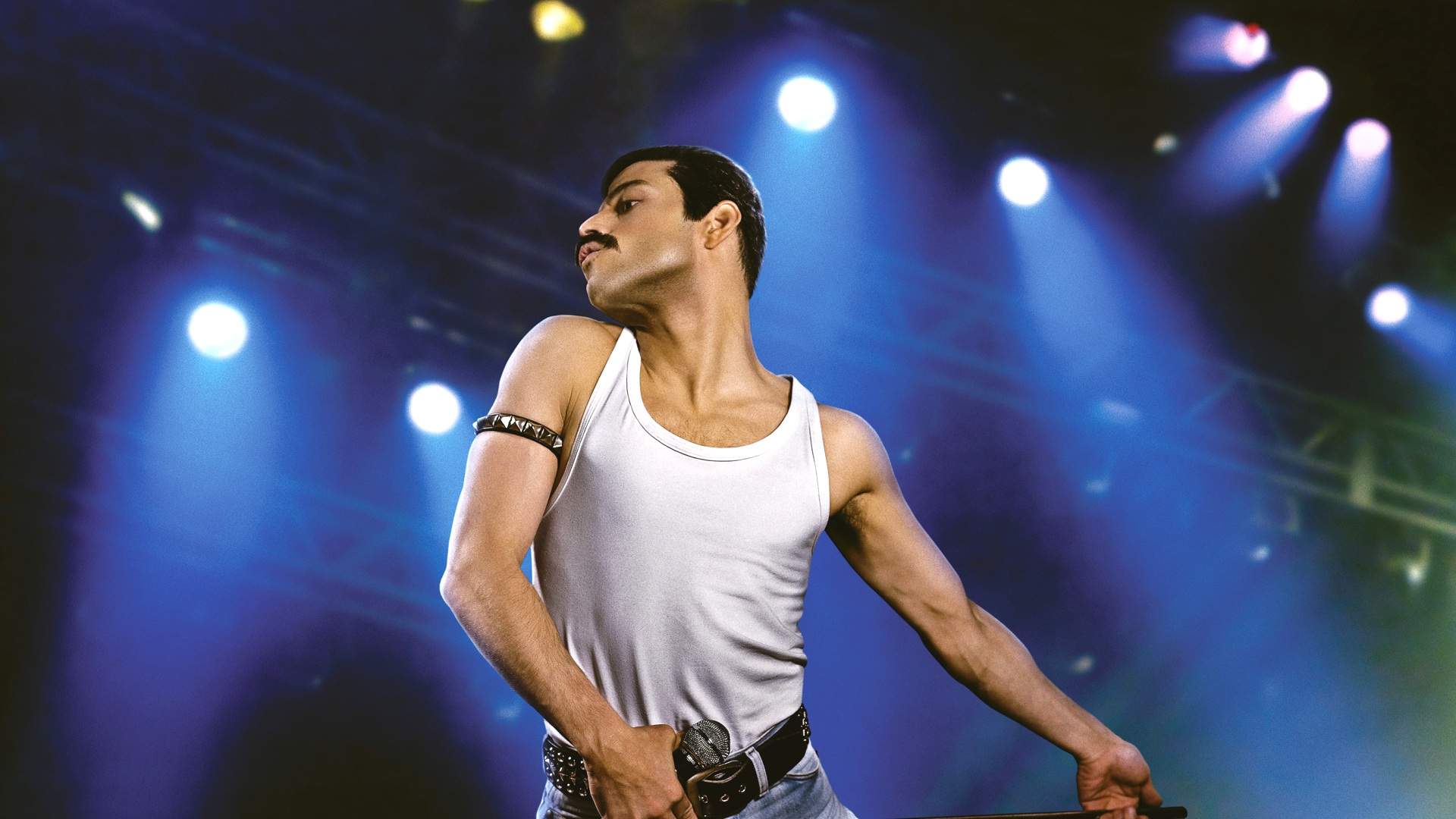Bohemian Rhapsody
This superficial but still engaging Queen biopic is lifted by Rami Malek's supersonic performance as Freddie Mercury.
Overview
UPDATE, November 13, 2020: Bohemian Rhapsody is available to stream via Amazon Prime Video, Google Play, YouTube Movies and iTunes.

To see Freddie Mercury take to the stage is to see a giant, one who leaps, slinks, prowls, thrusts and struts above the masses. Mercury wasn't a tall man, but he couldn't have had a bigger presence when he was performing. It's evident in every clip of Queen's gigs, and each of the British band's music videos too, but it's never more apparent than in the group's Live Aid show. For 20 minutes at Wembley Stadium on July 13, 1985, in a set played to 72,000 London concert-goers and beamed via television to a global audience of 1.9 billion, Mercury was the towering champion of the world.
Unsurprisingly, Queen's Live Aid performance forms a crucial part of Bohemian Rhapsody. Mercury's walk to the stage gives the film its opening moments, via glimpses of his moustache, sunglasses, crotch and singlet-adorned back, while the actual set itself provides the movie's climax. Filmed on the first day of the picture's production, it's an electrifying sequence made all the more so by Rami Malek's spot-on performance as Mercury. But the fact that the blistering show was a greatest hits set really couldn't be more appropriate for the film endeavouring to recreate its glory. The Live Aid gig featured 'Bohemian Rhapsody', naturally, as well as 'Radio Ga Ga', 'We Will Rock You', 'We Are the Champions' and more, and it gave everyone watching exactly what they'd hoped for.
Bohemian Rhapsody is a greatest hits movie. It's the neat, easily digestible version of Queen's career, and of Mercury's professional and personal ups and downs along with them. It's also highly sanitised, and even factually altered where it's more dramatically convenient. Here, the Zanzibar-born Parsi man originally known as Farrokh Bulsara chats to Brian May (Gwilym Lee) and Roger Taylor (Ben Hardy) at a pub gig on the night their lead singer quits, talks them into giving him a shot as their new vocalist, and unleashes his now-iconic four-octave range to change music history. Chart success, tours, fame and raucous parties all follow, even after the band's first record label exec insists that the six-minute 'Bohemian Rhapsody' will never be played on radio. Meanwhile, when he's not brandishing his flamboyant stage persona, Freddie struggles with the expectations of his stern father (Ace Bhatti), his complicated feelings for his girlfriend Mary Austin (Lucy Boynton), his sexuality, plenty of drugs and his eventual diagnosis with HIV.
Like the best-of releases that fill record stores and try to condense a musician or band's finest work to a single disc, a greatest hits film is never going to cut as deep as a proper album. That doesn't instantly make Bohemian Rhapsody a bad movie, or make best-of records bad records either. You know what you're getting when you listen to a greatest hits album, and it's exactly what's on offer with this formulaic biopic — but it's still largely enjoyable. This isn't exactly real life, and in many parts, it's purely fantasy. And yet, it's an engaging, albeit highly superficial interpretation of Queen and Mercury's heyday as painted with the broadest of strokes and featuring all of the expected tracks.
As with many rock biopics before it, Bohemian Rhapsody is all about the gloss, sheen and popular hits that reinforce the existing image of Queen and Mercury, rather than daring to delve beneath the surface. Covering a 15-year time span, this is the band-approved version of the story, not the reportedly darker affair that was originally set to star Sacha Baron Cohen. Still, Bohemian Rhapsody energetically takes to its chosen task. Director Bryan Singer — as well as the uncredited Dexter Fletcher, who took over when Singer was fired two-thirds of the way through shooting — bounces through a template that strings simplistic drama between songs, often using the former to give weight to the latter. The filmmakers also capitalise on a fact that has made the Mamma Mia flicks such a huge success with fans: a killer soundtrack can do plenty of heavy lifting.
Great songs don't make for a great movie by themselves, and Bohemian Rhapsody never reaches greatness, or even approaches it. It's entertaining as it hits its intended marks, although it remains noticeable (and even insulting to Mercury's legacy as a queer icon) that the picture skims over certain details. But, regardless of its handling of reality, the film delivers a supersonic turn by Malek. Far, far away from the reserved tension of Mr Robot, he walks, talks, belts out a tune, wears the tightest of pants and juts out his noticeable teeth just like the charismatic Mercury. Malek also gives texture to the movie's slight dives into deeper territory that isn't necessarily in the script — in particular, when Mercury grapples with the loneliness behind his life of excess, fights to retain his connection with Austin and learns of his illness. Both splashed loudly across big and small stages, and giving soulful, lonely stares in quiet moments, it's a performance that's a kind of magic. He will rock you, even if Bohemian Rhapsody itself favours making a big noise over taking on the world.





